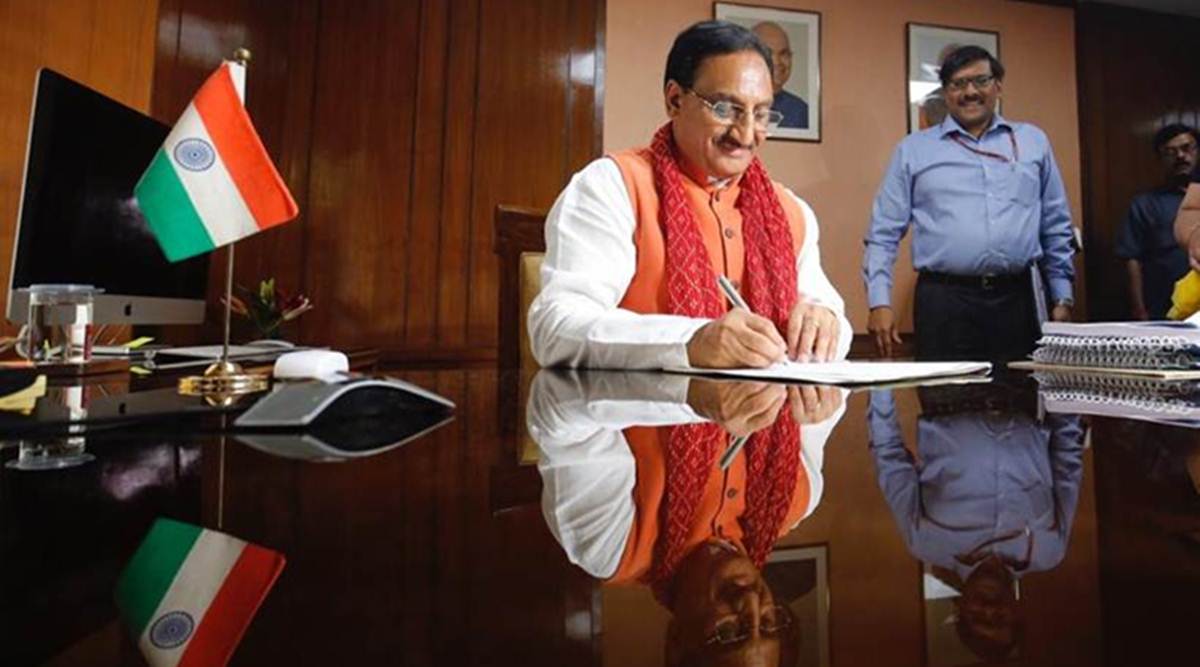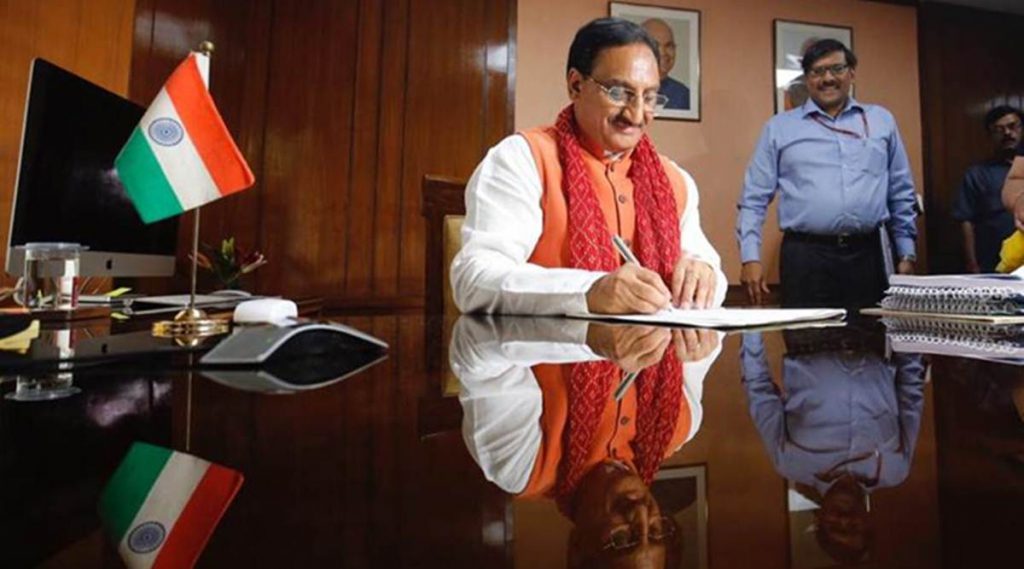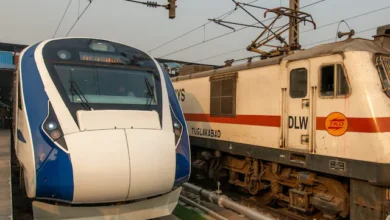New Education Policy introduced by Cabinet after 34 years, significant changes in school and higher education


The NEP aims to create an education system that contributes directly to transforming the country, providing high-quality education to all, and making India a global knowledge superpower. The central government has made some significant changes in the new policy.
In a bid to ramp up digital learning, a National Educational Technology Forum (NETF) would be created. “E-courses will be developed in eight regional languages initially and virtual labs will be developed,” Amit Khare, Higher Education Secretary, said.
According to the HRD Ministry document, listing salient features of policy, “such (foreign) universities will be given special dispensation regarding regulatory, governance, and content norms on par with other autonomous institutions of India.”
Standalone Higher Education Institutes and professional education institutes will be evolved into multi-disciplinary education. “There are over 45,000 affiliated colleges in our country. Under Graded Autonomy, Academic, Administrative and Financial Autonomy will be given to colleges, on the basis of the status of their accreditation,” he further said.
Take a look:
1) Mother tongue to be a medium of instruction till fifth grade.
3) School curriculum to be reduced to core concepts. The vocational education will be integrated from class 6.
3) Report cards will be a comprehensive report on skills and capabilities instead of just marks and statements. Board exams to be based on knowledge application, said Amit Khare.
4) There will be a common entrance exams conducted by the National Testing Agency (NTA) for admission to universities and higher education institutions.
5) MPhil courses to be discontinued under the new policy.
6) All higher education institutions, except legal and medical colleges, will be governed by single regulator.
7) There will be common regulations for both the private and public higher education institutions in the country.
8) Public investment in education sector to reach 6% of GDP at the earliest.
9) On-line self disclosure based transparent system for approvals in place of ‘inspections’.
10) More online courses will be developed in regional languages. Virtual labs will be developed and a National Educational Technology Forum (NETF) is being created under the new education policy.
11) The new policy seeks to expand access to higher education for 50% of high school students by 2035. At least 3.5 crore new seats will be added to higher education institutions.
“As on date, we have different norms for deemed universities, central universities, for different individual standalone institutions. New Education Policy says that for reasons of quality, norms will be same for all & not as per ownership”, said Amit Khare, higher education secretary.



